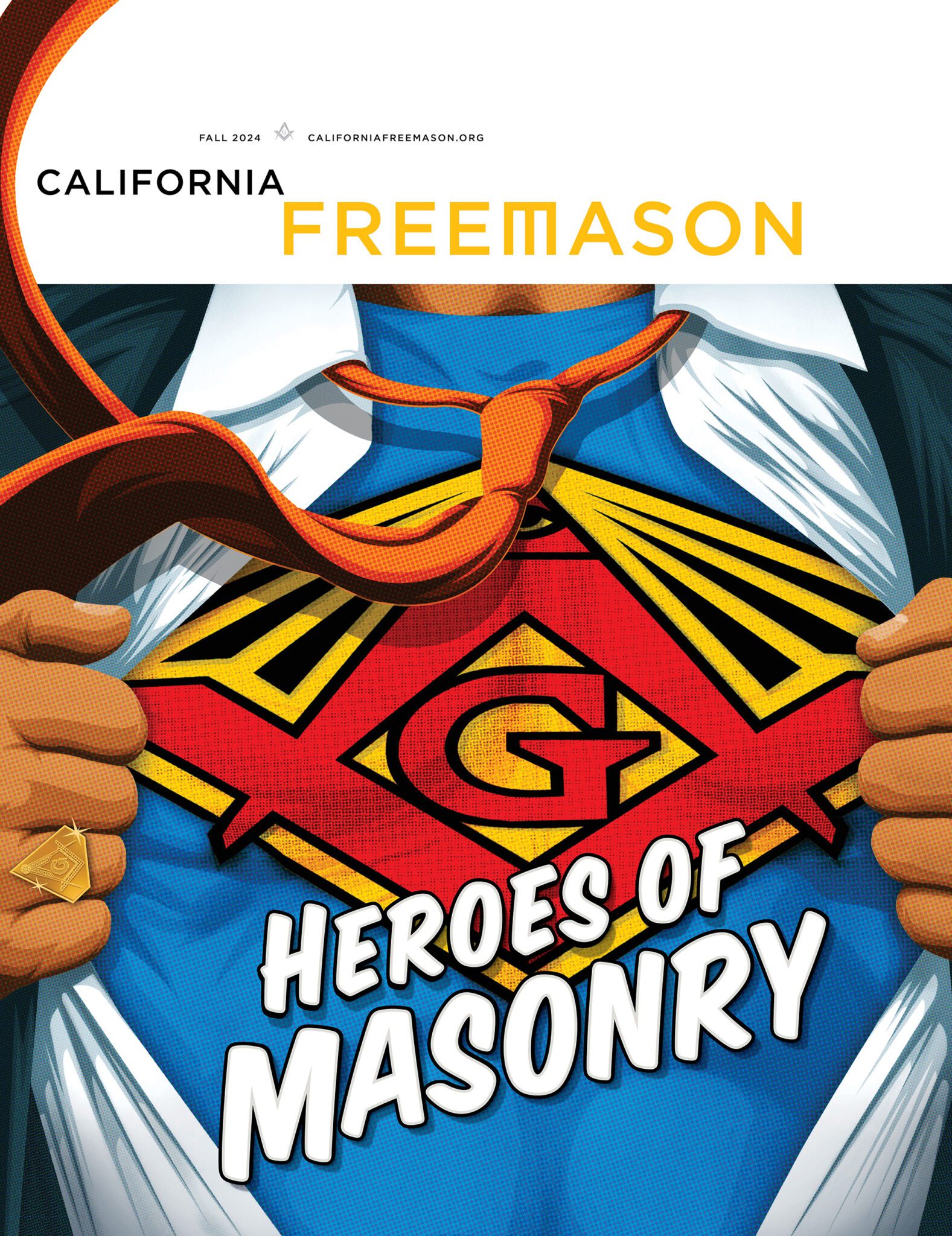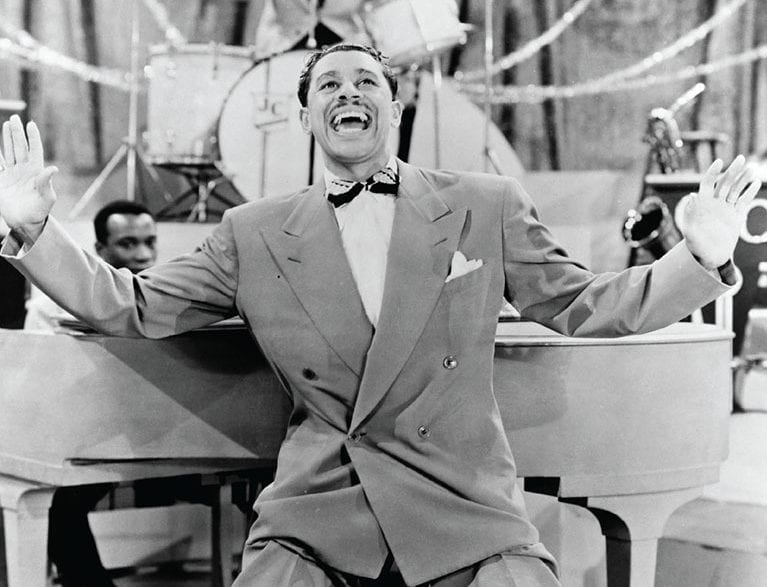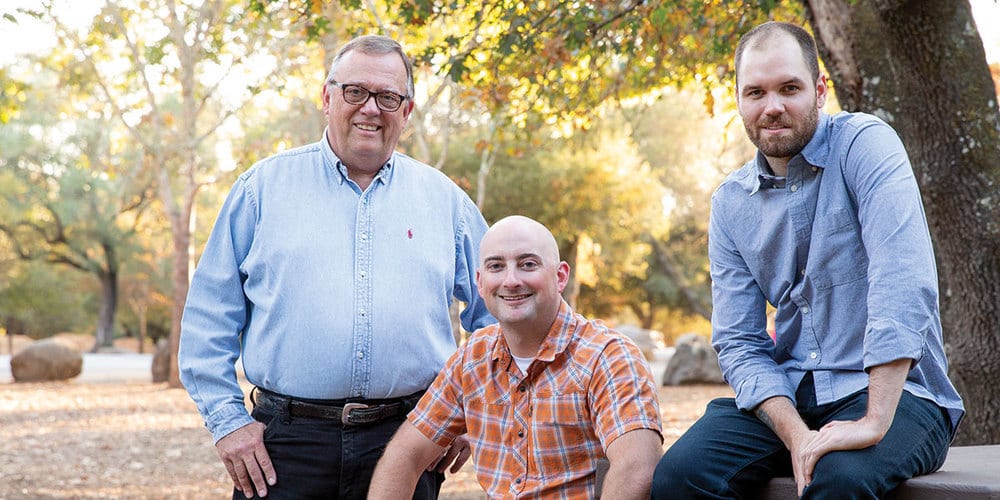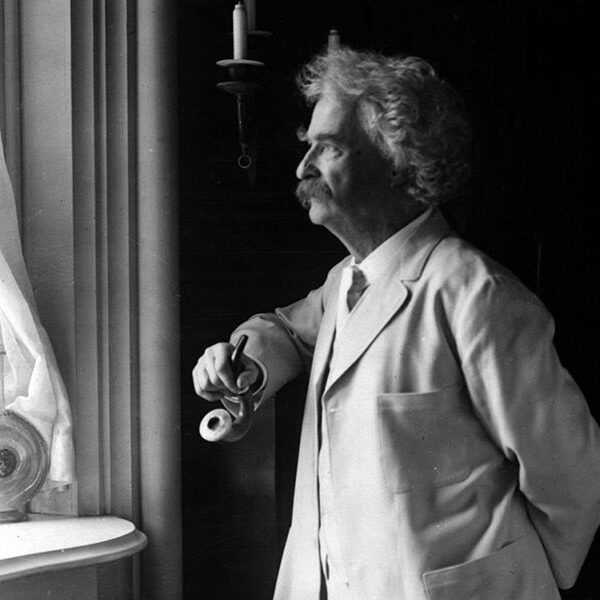
THE MASONS OF JAZZ
DEEP MASONIC FRIENDSHIPS CONNECTED
THE GIANTS OF JAZZ
By Michelle Simone
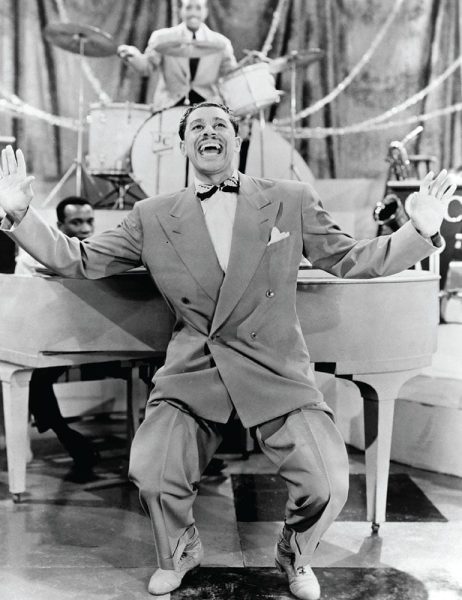
From Count Basie to Cab Calloway to Duke Ellington, many of the American jazz greats of the early- to mid- 20th century have long been household names, throughout the United States and well beyond. What’s not as well known is that many of these male musicians and their artistic contemporaries were also Prince Hall Masons, devoted to each other and united by their craft.
HUBS OF CREATIVITY
Medina Lodge No. 19, a Prince Hall lodge in New York City, is known for nourishing deep friendships between artists and musicians. This legacy dates back to the 1920s, when it was home to composer Eubie Blake and his lifelong friend and songwriting partner, Noble Sissle. Archival photos and videos show the two men reveling in each other’s company as they perform together, Blake on the piano and Sissle beside him, charming audiences with their contagious enthusiasm and visible delight.
This strong sense of fellowship was carried through their Masonic community. Jazz icon Count Basie, the “King of Swing,” was also a Medina Lodge member, and among the moments of fellowship he recounted fondly in his autobiography was the band’s gig on a tourist cruise, for which Blake was also in attendance. “Eubie was his usual fun-loving self. He claimed that he was warming up for his 87th birthday celebration!” quipped Basie.

Blake and Sissle, aka the “Dixie Duo,” were most well known for composing the lyrics and music to “Shuffle Along.” Produced in 1921, it was the first all-black musical to become a box office hit. Although today’s audiences would find some portrayals of black Americans in Shuffle Along to be problematic, it was a fundamental contribution to the beginning of the Harlem Renaissance. The musical launched the careers of many prominent black actors and vocal artists – including those of several Masons.
LIFTING ONE ANOTHER UP
Among the talented alumni of “Shuffle Along” was the multitalented actor and singer Paul Robeson, made a Mason at sight. First introduced to many American audiences by Blake and Sissle, he moved on to selling out productions of the musical “Show Boat” in London, largely because of his moving performance of the song “Ol’ Man River.” In 1930, Robeson continued to transcend barriers by starring in a groundbreaking performance of Shakespeare’s “Othello.”
Grammy Award-winning singer and jazz pianist Nat King Cole is another notable “Shuffle Along” alumnus; he performed as a pianist in the national tour. Perhaps most known today for his 1951 hit performance of the song “Unforgettable” by Irving Gordon, Cole was a Prince Hall Mason and lifelong member of the National Association for the Advancement of Colored People. When criticized for playing before segregated audiences in the early part of his career, he defended his decision, explaining, “I may be helping to bring harmony between people through my music.”
Perhaps because of this desire to reach diverse audiences regardless of their views around racial equality, Cole later became the first black American performer to host a variety TV series, “The Nat King Cole Show.” Though it lasted only one year, Cole used this platform to promote the work of fellow jazz artists, including Masons like Basie. And, the major highlight of his film career was playing W. C. Handy – known as the “Father of the Blues” – alongside famed showman, singer, and bandleader Cab Calloway, a member of Pioneer Lodge No. 1 in St. Paul, Minnesota.

It is possible that Cole’s inspiration for elevating his brothers’ careers was at least partially inspired by his home lodge, Thomas Waller Lodge No. 49 in Los Angeles. Jazz enthusiasts may recognize its legendary namesake: Thomas “Fats” Waller, widely considered to be one of the greatest jazz pianists ever. Among Waller’s many accolades was a Grammy Hall of Fame Award for his recording of “Ain’t Misbehavin’” which later inspired a 1978 musical by the same title – a tribute to the black musicians of the Harlem Renaissance.
SPREADING BROTHERLY LOVE
Although Prince Hall musicians did not often speak publicly of their Masonic friendships, a sense of kinship is evident when viewing photos and videos of the era of brothers performing together. Brothers also nodded to their Masonic friendships subtle ways, such as Duke Ellington – a member of Social Lodge No. 1 in Washington, D.C. and 32 Scottish Rite Prince Hall Mason – who is shown in his autobiography wearing a Shriner’s fez. Their close-knit friendships were also clearly evident to the non-Masons who frequently interacted with brothers, such as Louis Armstrong, who reminisces in his own autobiography about his enthusiasm for performing at Masonic funerals.
In his autobiography, “Bass Line,” Milt Hinton, “the Dean of Jazz Bass Players,” provided precious insight into the strong Masonic friendships his contemporaries enjoyed on the road. He belonged to Pioneer Lodge No. 1 at the same time as Calloway, and recalled how several musicians in their band, made it a priority to attend lodge whenever they were in St. Paul. “There were enough of us in the band to have our own [lodge] meetings on the road,” wrote Hinton. “Sometimes backstage between shows, we’d have a short meeting and conduct readings.”
Prince Hall musicians also drew upon their Masonic values of tolerance and respect while traveling to perform for audiences around the world. As jazz music reached nearuniversal popularity, its musicians were oftentimes turned to for fostering diplomacy. A prime example is that of Bro. Lionel Hampton, aka “the King of the Vibes.” He was initially known for introducing the vibraphone to jazz music; yet it was his notable talent as a composer and arranger for the selftitled Lionel Hampton Orchestra that cemented his global reputation.

In 1957, U.S. President Dwight D. Eisenhower appointed Hampton as “American Goodwill Ambassador,” a role extended by President Richard Nixon. Over the course of several years, Hampton and his orchestra made numerous tours throughout Africa, Asia, Europe, and the Middle East, sharing their music and exploring the cultures of the world. A document in the U.S. National Archives reports on Hampton’s journey to the “Far East,” stating:
Lionel Hampton has a charisma all his own. His personality reaches out to people and they react favorably. He is completely cooperative and equally engaging to the Thai public whether playing clubs, giving jazz workshops, performing for the Royal Household or touring the markets and landmarks of the city.
Hampton once said, “Gratitude is when memory is stored in the heart and not in the mind.” And, it is a sense of humility and gratitude that seems to tie together the legacies of these great Masonic artists. As each of them achieved remarkable personal successes, they were tied together and lifted up by the bonds of brotherly love that they shared. It was an internal force – a sense of strength to move forward, coupled with an obligation to carry their brothers with them.
As Hinton put it, “Being a Mason is a sacred thing.”
PHOTO CREDIT: Heritage Image Partnership Ltd and Almay Stock Photo
More from this issue:

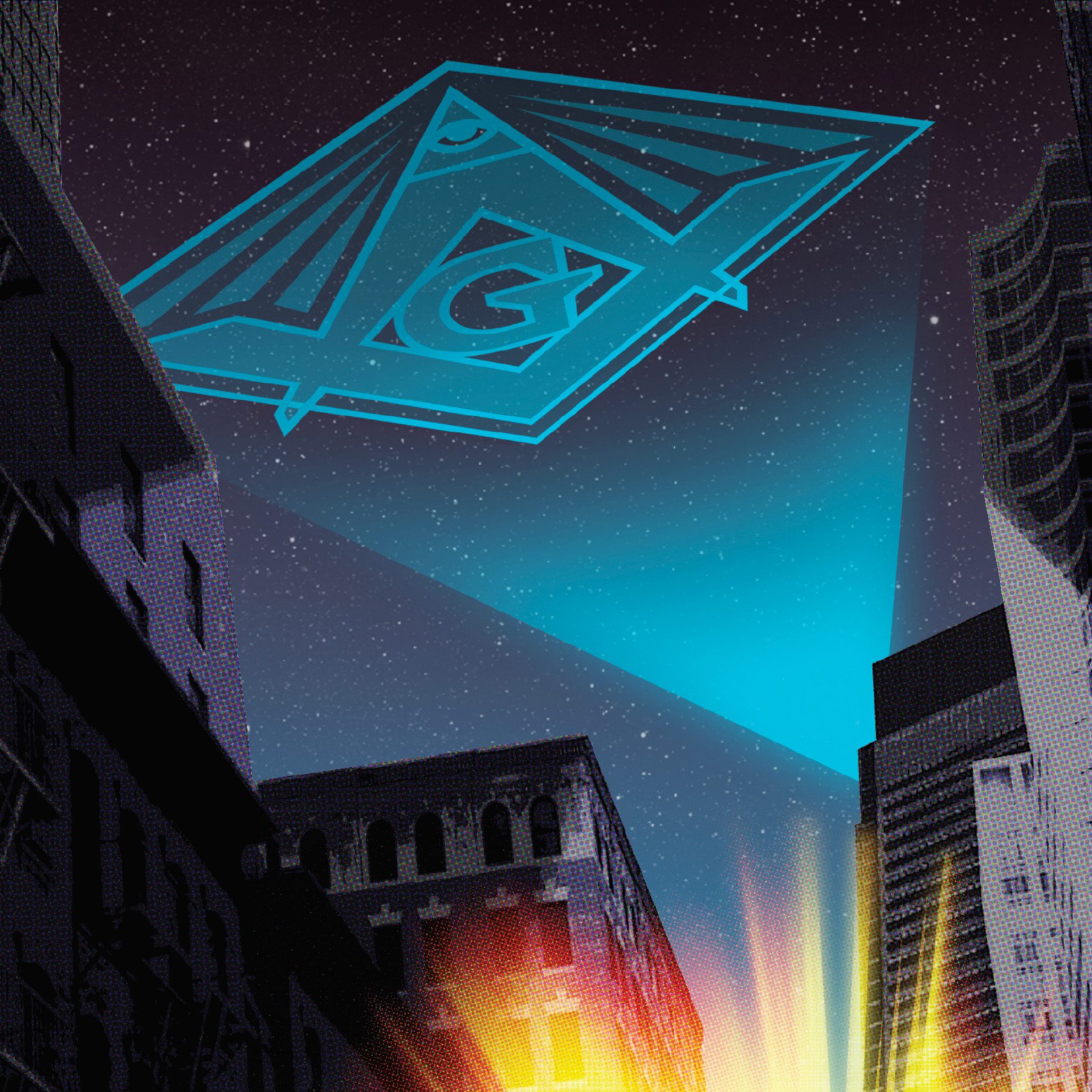
The Heroes of Masonry: They Wear Aprons, Not Capes
Celebrating the best and brightest of Freemasonry in California.
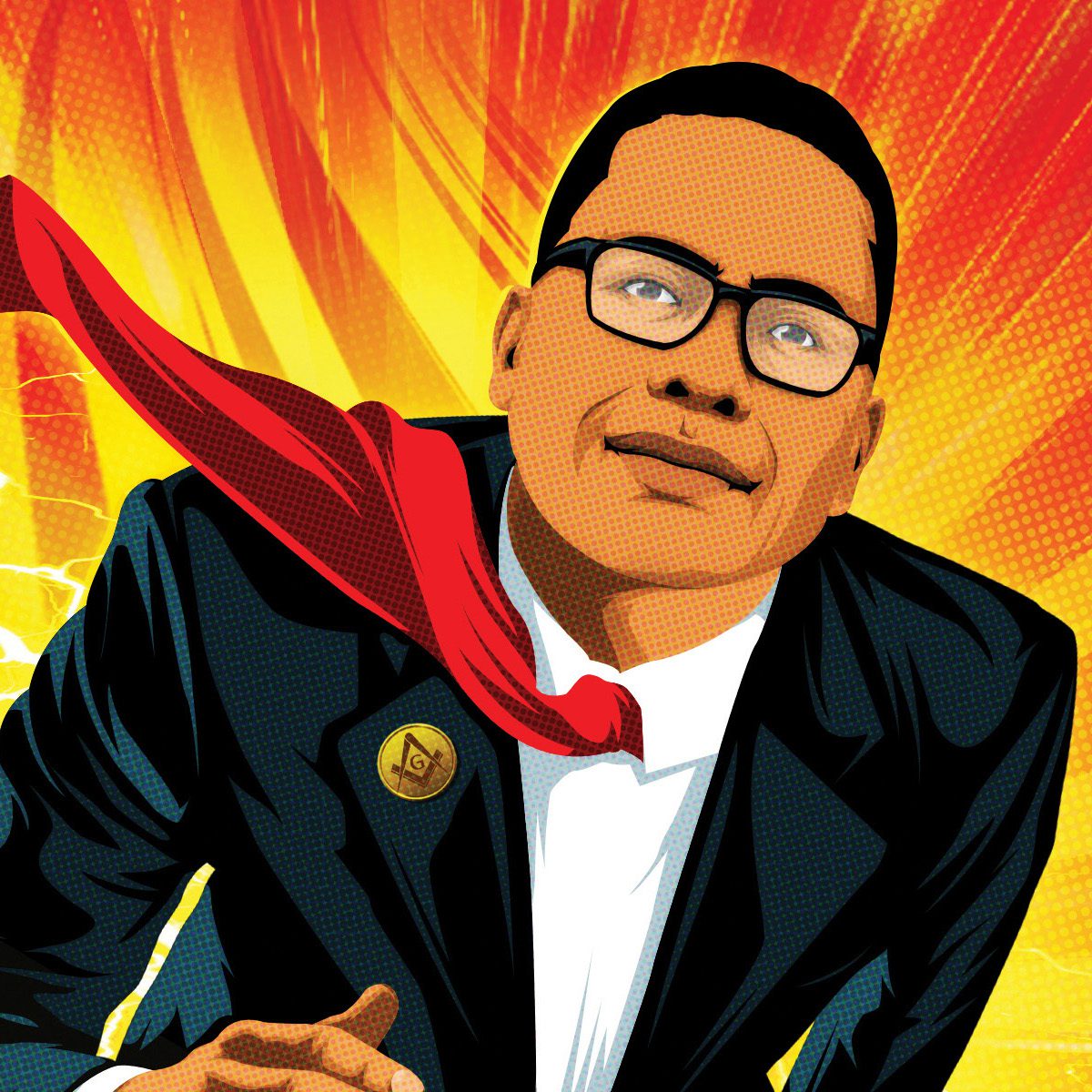
The Exemplars: Meet the 2024 California Masons of the Year
Dennis Caoile and Henry Dosdorian, the 2024 Masons of the Year, demonstrate that the common denominator of Freemasonry is service to others.
